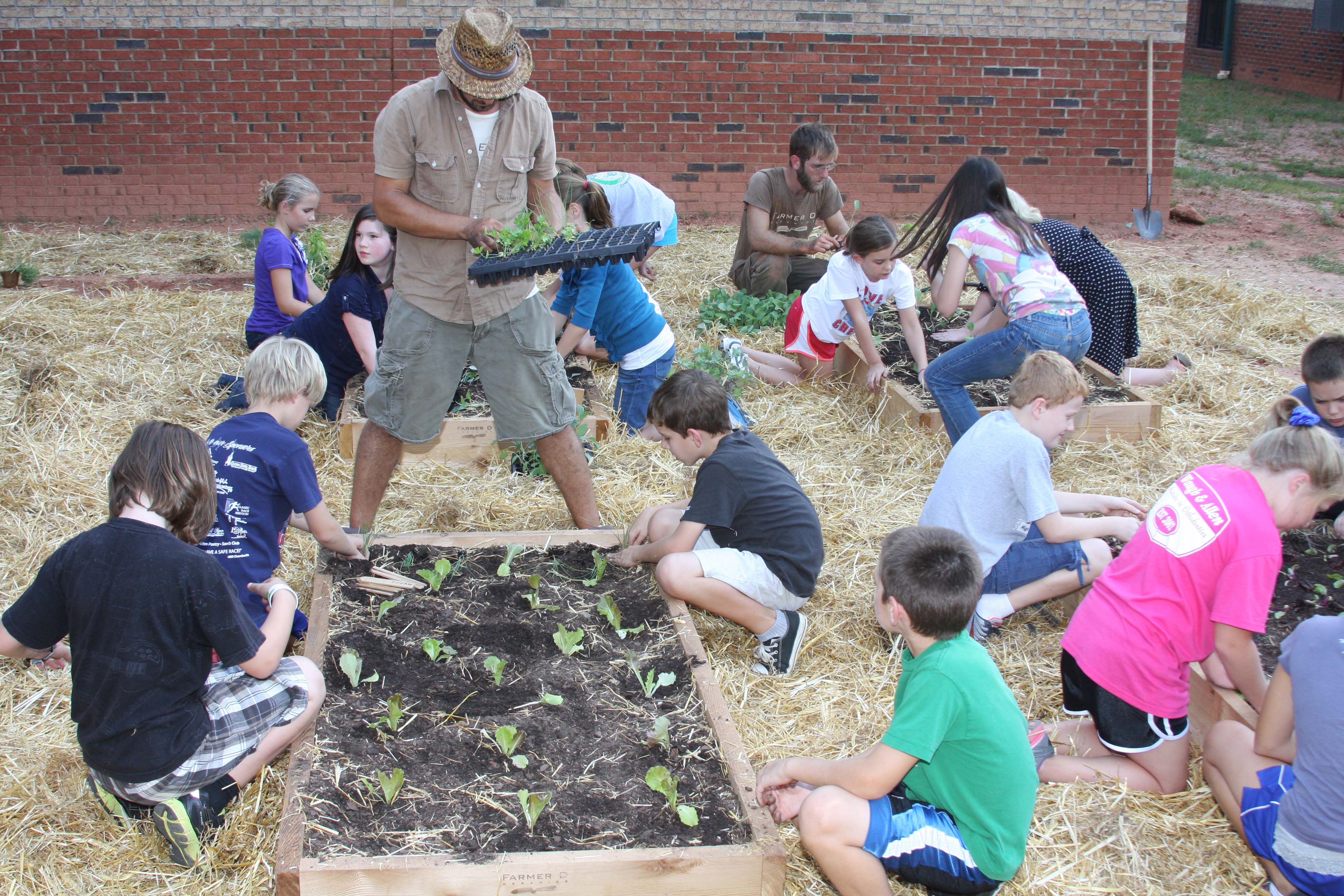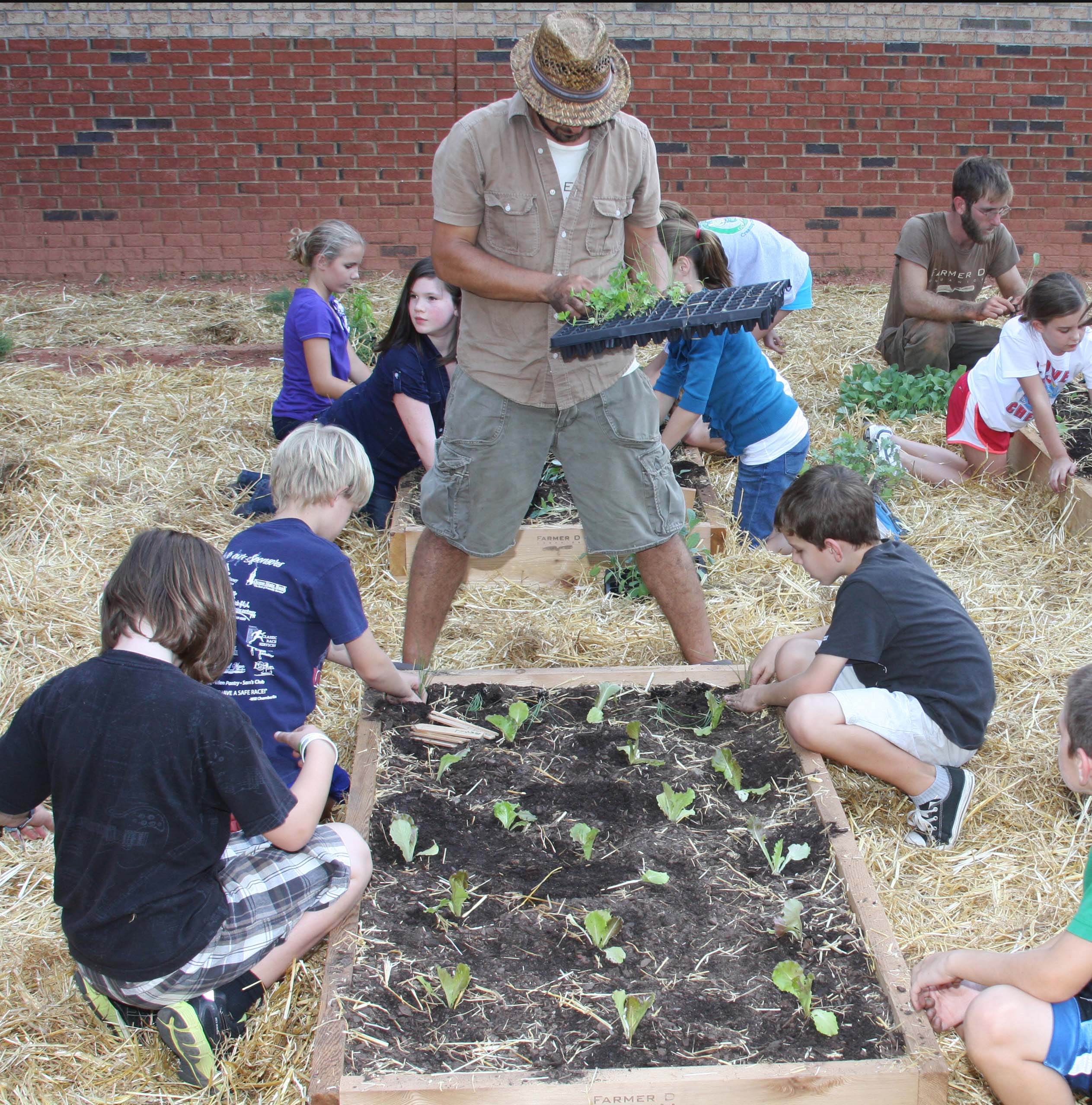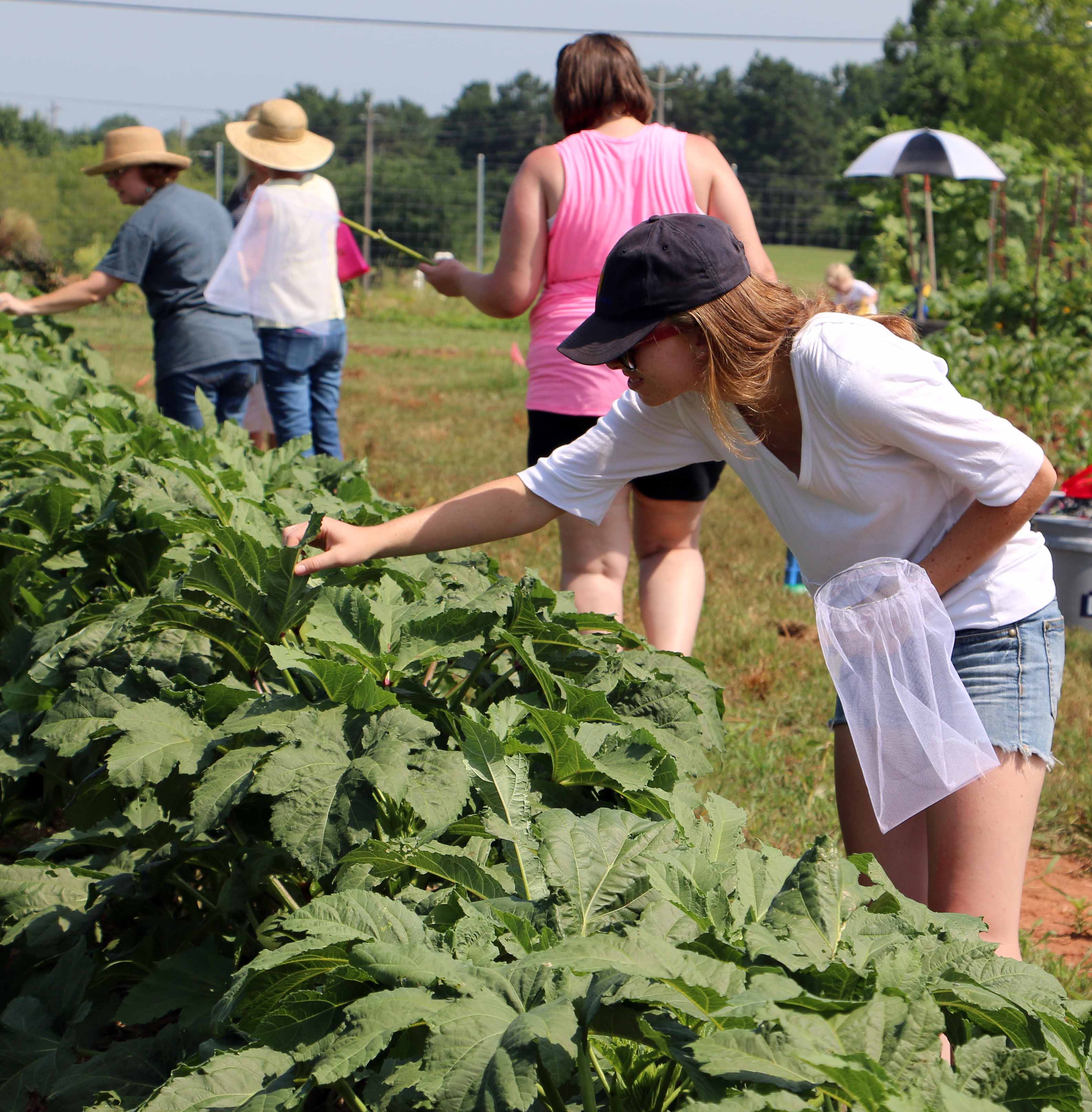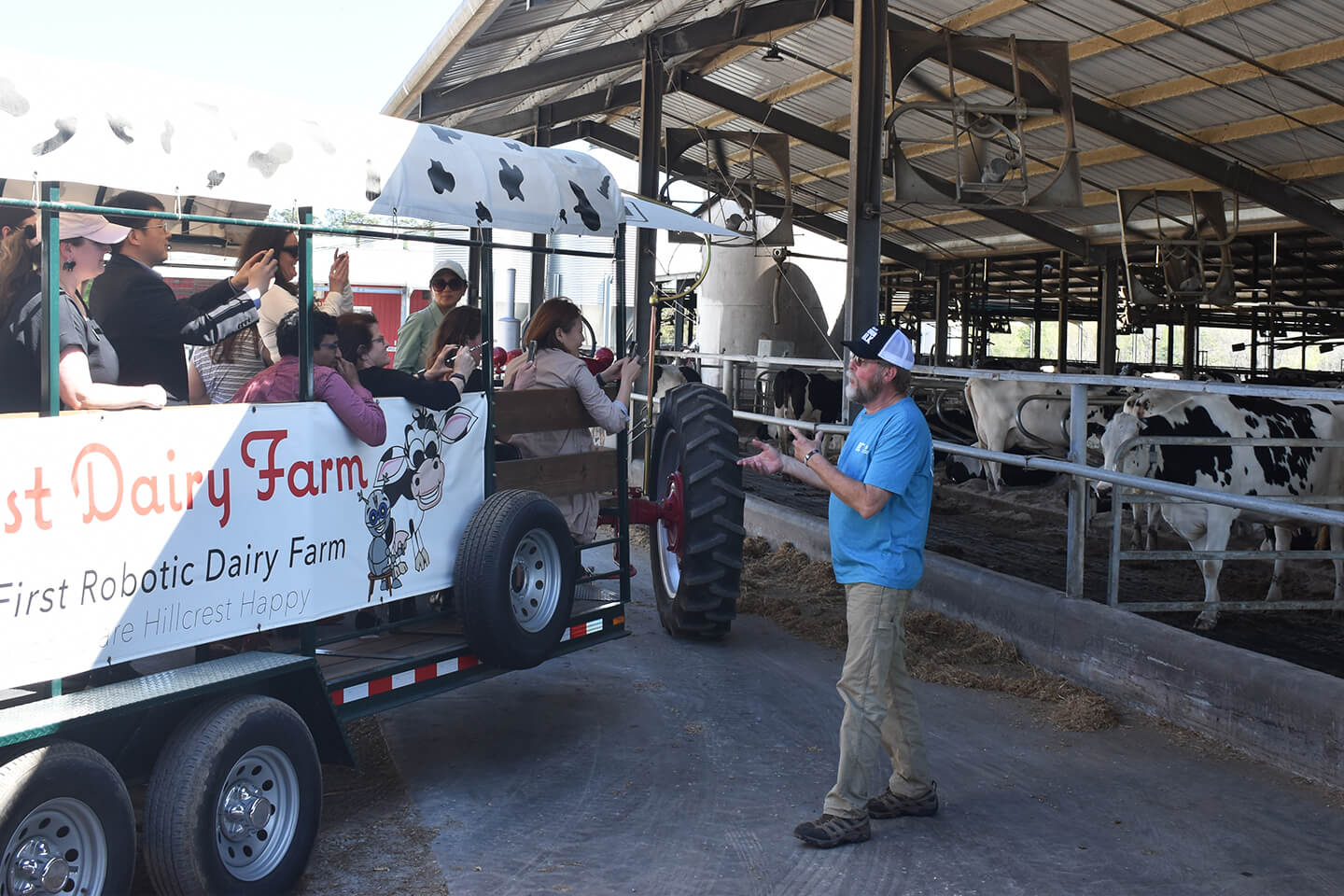Over the past decade, the numbers of school gardens across Georgia has grown rapidly, and these gardens have become vital to the teaching process.
Once seen primarily as a way to teach students about the importance of fresh vegetables and proper nutrition, the school garden has become a classroom resource that covers much of the curriculum.
“I think the school garden movement is still growing,” said Becky Griffin, University of Georgia Cooperative Extension community and school garden coordinator. “While we started to see (schools’) food gardens at first, we’re seeing a lot of other types of gardens (at schools) today: pollinator gardens, historical gardens and so on. Teachers are learning how to take one bed of vegetables and apply it to basically every class.”
Across the country, where one in four schools have a school garden, teachers are refining the ways they use their gardens for instruction.
This summer, Griffin, UGA horticulture Professor David Knauft, and Alicia Holloway, UGA Extension agent for Barrow County and former teacher, offered school garden training to 70 teachers from 41 counties across the state. This is the third year Griffin has offered the training. She’s started to see a shift in the school districts that are sending teachers to the training.
“This year we had teachers from across the state, from big, metro-county school systems as well as more from rural school systems that might only have one middle school and one teacher to tend the garden,” she said.
Teachers from larger districts dominated trainings in the past, she said. There seems to be a growing feeling that school gardens are not something extra, but a tool that teachers can use on a daily basis, she said.
School gardens are also helpful for achieving schoolwide STEAM (science, technology, engineering, arts and math) Certification, a Georgia Department of Education program that recognizes schools using a holistic approach to teaching STEAM subjects.
“Schools can get a feather in their cap for using their school garden to meet the STEAM certification,” Griffin said. “Teachers use their gardens to teach history by growing beans that (Meriwether) Lewis and (William) Clark brought back from their expedition, and they plant colonial gardens filled with crops from the time of George Washington. They also use school gardens to teach math. You use lots of division and recording to plant a garden. Some teachers have the students grow their crops in geometric shapes.”
STEAM Certification was on the top of the minds of the teachers who came to work with Griffin this summer, she said. The workshops focus on both the horticultural and logistical side of running and maintaining a school garden, but also provide teachers time to network and brainstorm ideas for lesson plans.
UGA Extension and UGA agricultural education experts have worked for the past five years to build a thorough listing of lesson plans and garden resources, which are available at extension.uga.edu/k12/school-gardens. The annual summer training helps Griffin and other contributors keep that resource list stocked with information that teachers need for the current school year.
Parents, teachers and students who are looking for help starting or maintaining a school garden should call their local UGA Extension agent at 1-800-ASK-UGA 1 and visit extension.uga.edu/k12/school-gardens.









